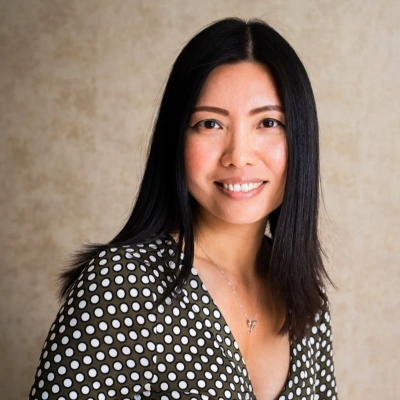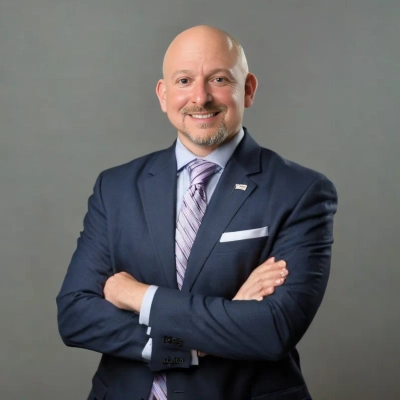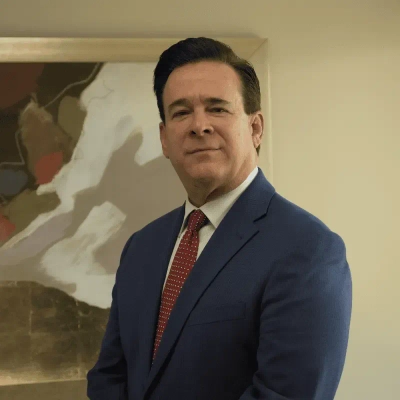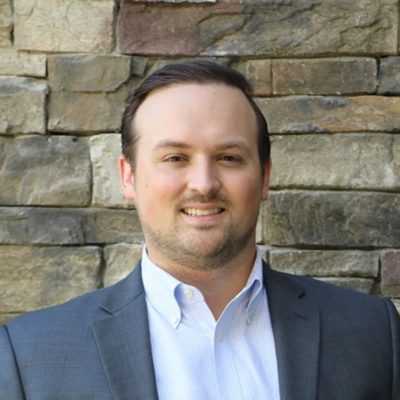7 Niche Specializations That Help Boutique Law Firms Thrive
Boutique law firms face unique challenges in standing out within a competitive market, but strategic specialization can be the key to sustainable growth. This article explores seven niche areas where smaller firms can build thriving practices, from crypto-asset compliance to medical malpractice defense. Industry experts share practical insights on how focusing on specific legal needs creates competitive advantages and attracts ideal clients.
Focus on Whiplash and Soft Tissue Claims
The niche specialization that allowed my boutique firm to thrive was focusing specifically on whiplash and soft tissue injuries from car accidents rather than trying to handle every type of personal injury case. At AffinityLawyers, I discovered that insurance companies routinely undervalue whiplash claims because they're harder to prove than broken bones or surgeries, which created an opportunity for lawyers willing to develop expertise in demonstrating these injuries through proper medical documentation and expert testimony. I think that this particular focus worked because we became known among physiotherapists and chiropractors as the firm that actually fought for soft tissue injury cases that other lawyers dismissed as too small or difficult, which generated a steady referral stream before those relationships got restricted by regulatory changes. The specific advantage was that we developed systems for documenting these injuries properly from day one, including specific medical tests and expert relationships that consistently generated settlement values 40 to 60 percent higher than what general personal injury lawyers achieved for similar cases. What made this niche profitable was that insurance companies learned we would take cases to trial rather than accepting lowball offers, which meant they started settling our whiplash cases for reasonable amounts to avoid litigation costs even though they fought similar cases from other firms. My advice is that niche specialization works when you identify problems that clients have trouble solving through general practitioners, because becoming the expert in underserved areas generates referrals and premium fees that broad practices competing on volume can never achieve.

Specialize in Crypto-Asset Regulation and Compliance
One specific niche that allowed our boutique law firm to thrive was crypto-asset regulation and cross-border digital finance compliance, particularly under the evolving frameworks of EU's MiCA Regulation and Turkish Law No. 7518. While many firms hesitated to invest in understanding blockchain-based legal frameworks, we leaned into it early — combining deep regulatory analysis with real-world advisory for crypto exchanges, token issuers, and investors.
This niche worked exceptionally well because it positioned us at the intersection of technology, finance, and international law, where demand was high but expertise was scarce. Our academic engagement — including PhD-level research on MiCA — further differentiated us in a complex, fast-moving field, attracting not only clients needing compliance but also those facing enforcement or structuring challenges.
By becoming thought leaders in this legal frontier, we built trust with both startups and established institutions navigating the digital asset ecosystem.

Own Transfer Pricing Legal Implementation Gap
Our niche specialisation—legal implementation of transfer pricing policies through intercompany agreements (ICAs)—has been the key to LCN Legal's growth. Most firms focus on tax or accounting advice, but few address the legal enforceability of transfer pricing structures. By owning this gap, we became the go-to specialists for multinationals needing audit-ready, compliant ICAs. It worked because it solved a real pain point: companies had sound TP documentation but lacked the legal foundation to defend it in audits or transactions.

Transform Personal Experience Into Practice Expertise
When I started my firm, I practiced general law—a little bit of everything, helping anyone who walked through the door. But I quickly realized that trying to be everything to everyone meant I wasn't being exceptional for anyone. The turning point came from my own lived experiences.
As a young child, I was bitten by a family member's dog, requiring stitches and leaving me with both physical scars and a deep understanding of sudden, traumatic injury. Years later, I survived two serious car accidents—one in 2006 that left me with a torn shoulder requiring surgery, and another in 2012 while my wife was pregnant with our first child. I nearly died at that intersection, terrified I'd never meet my daughter.
These weren't just legal cases to me—they were my life. I experienced the insurance company runarounds, the devaluation of my claims due to "pre-existing" injuries, the emotional devastation, and the exhausting recovery process. I lived the confusion and frustration that accident victims face.
That's when I made the pivot. I transformed Pinder Plotkin into a personal injury firm specializing exclusively in car accidents and dog bites—the two types of cases where I could genuinely say, "I know exactly what you're going through."
For other attorneys considering specialization, here's what made this work: First, identify where your personal experience intersects with legal need. Authenticity isn't manufactured—clients sense when you truly understand their pain. Second, commit fully. By concentrating exclusively on these practice areas, our firm quadrupled in size. Half-measures dilute your expertise and your message. Third, let empathy drive strategy. Understanding the true cost of these injuries—not just medical bills, but lost time with family, emotional trauma, and life disruption—fundamentally changed how we advocate and negotiate.
The specialization works because it's real. We don't just practice personal injury law—we've lived it.

Narrow Down to Medical Malpractice Cases
Our boutique law firm in Miami specialized in medical malpractice cases involving diagnosis delay and surgical errors in South Florida. Most firms in our market take on all types of personal injury cases; we decided to dwindle down to highly technical areas.
This narrowing of cases worked to our advantage because these cases were of high value and required deep legal and medical expertise, creating a barrier for entry-level competitors. Clients were also emotionally distraught facing these issues because they're overwhelming; we became a resource through our experience, and it also allowed us to focus our network with medical professionals and deliver great outcomes consistently.
The clarity of niching down brought more referrals and better business, and we soon became synonymous with surgical error cases, not just another injury firm. We chose one big problem and got so good at solving it we built our reputation off just that.
Handle International Matters Requiring Global Coordination
We are a law firm that specializes in assisting clients with international matters that require the ability to work with lawyers globally, understand differences in legal systems, and develop a strategy based on a complete understanding of how international treaties affect local matters. For example, we handle Hague Child Abduction Cases, which require not merely an understanding of local laws, but the intricacies of the treaty and local legal systems.
This specialization sets us apart from the crowd and allows our lawyers to be recognized in legal publications and newspapers, since these types of cases are more interesting for local vernaculars and few lawyers have the capabilities to handle these types of international legal matters.
Sean Hayes

Serve Busy Parents With Online Scheduling
We specialized in "Modern Estate Planning for Busy Parents."
Many legal practices cater to retirees with money and free hours during the day. Instead, my office shifted direction - now serving employed parents of young kids, people who need estate plans but struggle to find time. These clients often worry about custody issues later on. To help, we work entirely online, offering appointments after regular business hours.
Why it succeeded: There was a clear need we spotted early. Older companies expected tired parents to arrange time off plus figure out babysitting - all just to draft a will. Instead, our method fit into quiet moments, like while kids napped or once the family ate dinner. That shift didn't only attract customers - it built loyal supporters who spread the word naturally, often bringing in friends nearby.



